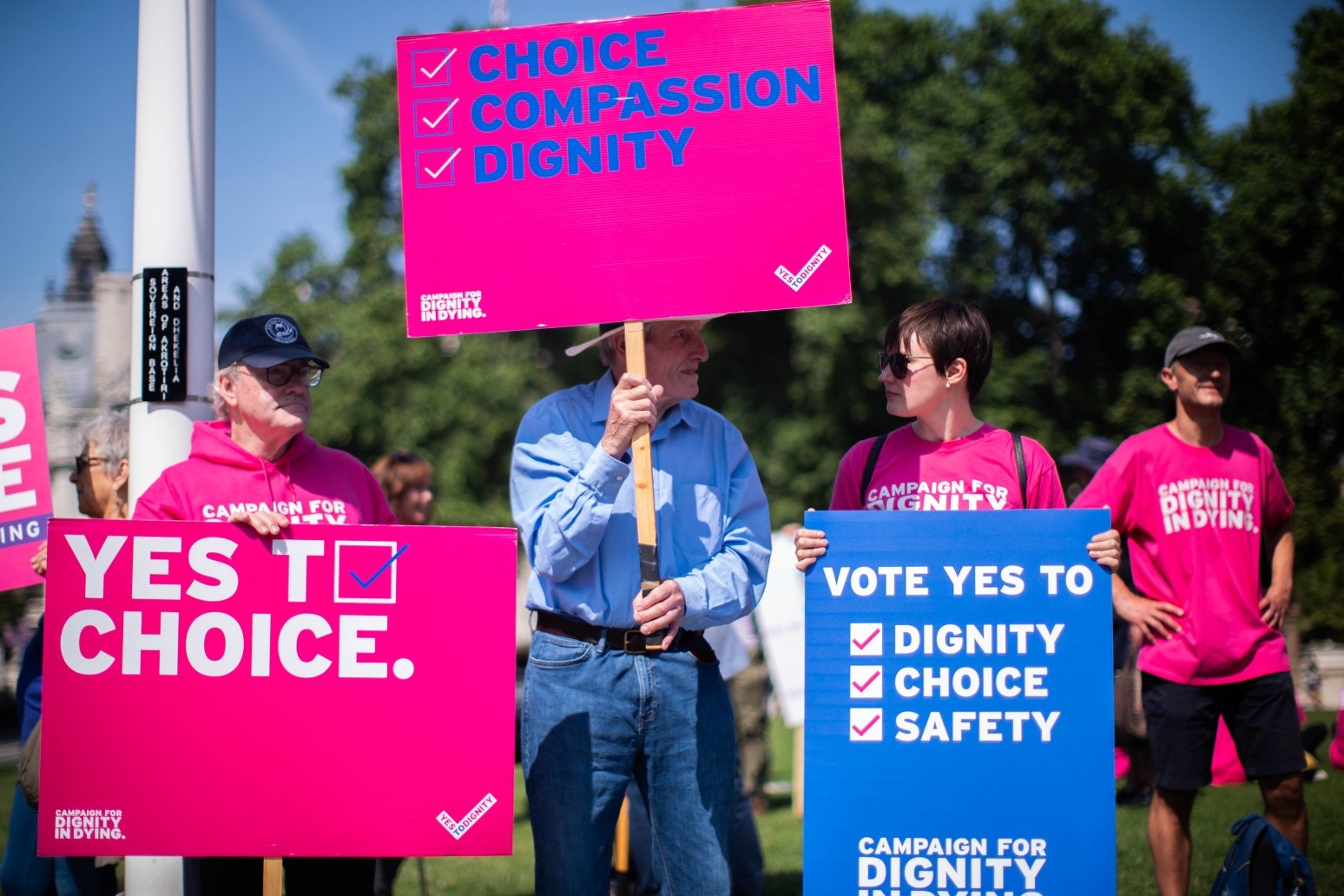-
 play_arrow
play_arrow
Kl 1 Radio Local radio for west Norfolk
-
 play_arrow
play_arrow
KL DISCO KL Disco Playing Disco Music from the 70's onwards.24/7
-
 play_arrow
play_arrow
KL COUNTRY KL COUNTRY Playing New and Classic Country Music 24/7
-
 play_arrow
play_arrow
KL ROX KL ROX The best of New and Classic Rock.24/7
-
 play_arrow
play_arrow
KL SUMMER Summer Vibes 24/7 from KL1 Radio across West Norfolk
-
 play_arrow
play_arrow
KL CLASSICAL Your Symphony Starts Here
-
 play_arrow
play_arrow
KL CHILL Just Chill!
-
 play_arrow
play_arrow
KL POP The Best POP Hits all day Long!
-
 play_arrow
play_arrow
KL XTRA KL XTRA
music_note
Ban on advertising and safeguard for child patients added to Assisted Dying Bill


MPs said health professionals would not be allowed to raise the subject of assisted dying with child patients and advertising for such a service would be banned.
MPs said health professionals would not be allowed to raise the subject of assisted dying with child patients and advertising for such a service would be banned.
The new parts to the Terminally Ill Adults (End of Life) Bill were voted in on Friday as a second day of debate on various amendments came to a close.
It is expected the next major vote on the overall Bill could take place next Friday, which could see it either fall or pass through to the Lords.
Impassioned debate heard the Bill described by Conservative MP Kieran Mullan as a “deeply consequential and highly contentious piece of legislation for our society”.
He argued not enough time has been allocated for debate on such a divisive issue, but health minister Stephen Kinnock said there had been more than 90 hours of parliamentary time spent so far, and more than 500 amendments had been considered at committee stage earlier this year.
On Friday a majority of MPs approve a new clause, tabled by Labour MP Dame Meg Hillier, to ensure medics cannot raise the topic of assisted dying with under-18s.
Her separate amendment to prevent health workers from bringing up the issue with adults patients before they have raised it was voted down.
A ban on advertising assisted dying should the Bill pass into law was also approved.
The amendment on child patients was hailed as a “first major Commons defeat” by opposition campaigners Care Not Killing which welcomed “MPs removing the ability of doctors to raise unprompted assisted suicide with children”.
An amendment, by fellow Labour MP Paul Waugh, to limit exceptions on that ban did not pass.
He said the ban as it stands has “unspecified exceptions, which could make the ban itself worthless”, warning online harms from ads about assisted dying on TikTok “could be a reality without the tighter safeguards in my amendment”.
A number of other amendments were passed, including a provision for assisted dying deaths to not automatically be referred to a coroner and around the regulation of substances for use in assisted dying.
Other issues debated included an amendment requiring the Health Secretary to publish an assessment of the availability, quality and distribution of palliative and end-of-life care one year after the Bill passing into law.
Pledging her support for the amendment, which was tabled by Liberal Democrat Munira Wilson, Kim Leadbeater said MPs should not have to choose between supporting assisted dying or palliative care as it is not an “either/or” conversation for dying people.
She said palliative care and assisted dying “can and do work side by side to give terminally-ill patients the care and choice they deserve in their final days”, and urged MPs to support “all options available to terminally ill people”.
Ms Wilson’s amendment is supported by Marie Curie, which said it is “desperately needed as the end-of-life care system is in crisis, with huge gaps in services and a lack of NHS leadership on this vital part of our health and care system”.
It is expected that amendment could be voted on next Friday.
One MP, who became emotional as she recalled the death of her husband who she said had been “in extreme pain” with terminal cancer, urged her colleagues to “mind our language” after words like “murder” were used.
Liberal Democrat MP Caroline Voaden, whose husband died of oesophageal cancer, said it is “so wrong” to use such language.
She said: “This is about helping people die in a civilised way and helping their families not go through a horrendous experience of watching a loved one die in agony.”
The beginning of Friday’s session saw MPs add a new opt-out clause to the Bill.
The amendment, meaning no person including all health and social care professionals, can be obliged to take part in assisted dying had been debated and approved last month, but has now been formally added to the Bill.
The Bill passed second reading stage by a majority of 55 during a historic vote in November which saw MPs support the principle of assisted dying.
Demonstrators both for and against a change in the law once again gathered outside Parliament to make their views known on the Bill.
Sarah Wootton, chief executive of Dignity in Dying which is in favour of a change in the law, said: “Our country is closer than ever before to the safe, compassionate, and tightly regulated assisted dying law that so many people want, from all walks of life and every part of the country.”
But former MP Caroline Ansell, from Christian Action Research and Education (Care), which opposes assisted dying, urged parliamentarians to vote against the Bill.
She said: “It is irredeemably flawed in principle and in detail. Parliament should close the door to assisted suicide and focus on truly compassionate and life-affirming forms of support.”
As it stands, the proposed legislation would allow terminally-ill adults in England and Wales, with fewer than six months to live, to apply for an assisted death, subject to approval by two doctors and a panel featuring a social worker, senior legal figure and psychiatrist.
MPs are entitled to have a free vote on the Bill and any amendments, meaning they vote according to their conscience rather than along party lines.
Published: by Radio NewsHub

Similar posts
Upcoming shows

Darren Furzey – Classic Hit Weekend
1:00 pm - 3:00 pm

Lee Vincent – Classic Hit Saturday
3:00 pm - 6:00 pm

James Roberts – Saturday Anthems
6:00 pm - 8:00 pm

Liam Walsh – Guilty Pleasures
8:00 pm - 10:00 pm

Jonathan Charles – Best Disco In Town
10:00 pm - 11:00 pm
Message Us
Copyright The Mediasite UK - 2025








